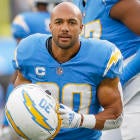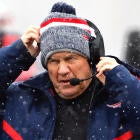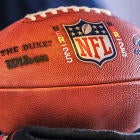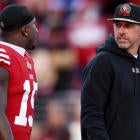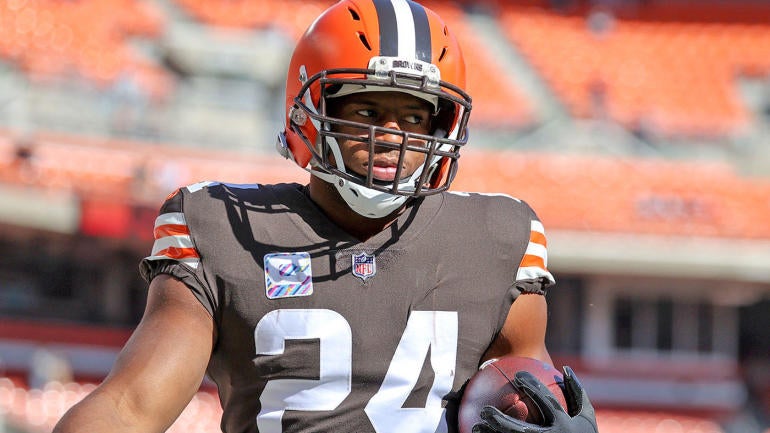
Running backs aren't getting the money they want these days, so a handful of the NFL's best came together Saturday for a private Zoom meeting to discuss next steps, according to ESPN. Organized by the Chargers' Austin Ekeler, the meeting included the 49ers' Christian McCaffrey, Browns' Nick Chubb, Giants' Saquon Barkley, Raiders' Josh Jacobs and Titans' Derrick Henry.
Their discussion, which reportedly didn't result in any tangible action steps, came after a slew of social-media remarks from running backs frustrated by their declining value to NFL teams. Barkley and Jacobs have been among the most outspoken regarding their failure to secure lucrative extensions with their respective clubs, with each threatening a 2023 holdout.
Chubb -- the last running back to sign a long-term deal worth $10 million or more per season -- spoke about the meeting on Sunday.
"Right now, there's really nothing we can do," Chubb said. "We're kind of handcuffed with the situation. We're the only position that our production hurts us the most. If we go out there and run 2,000 yards with so many carries, the next year they're going to say, you're probably worn down. It's tough. ... It hurts us at the end of the day.
"We're definitely in a tough situation, running backs as a whole. Saquon's a great player and you can ask anyone around the league or even on the Giants how much he means to that team. So it's hard seeing him not get what he deserves."
Ekeler, who became the seventh player since the 1970 AFL/NFL merger to lead the league in touchdowns scored in consecutive seasons, was reportedly the meeting's organizer. Ekeler hasn't received a contract extension from the Chargers despite his historic efforts, and he couldn't find interest on the trade market. All he was given was additional incentive bonuses for the 2023 season.

Pick Six Newsletter
Crafted By The Best NFL Experts
Get the day's big stories + fun stuff you love like mock drafts, picks and power rankings.
Thanks for signing up!
Keep an eye on your inbox.
Sorry!
There was an error processing your subscription.
Green Bay Packers Pro Bowl running back Aaron Jones took a pay cut in order to remain with the Green and Gold despite running for a career-high 1,121 rushing yards, the 10th most in the NFL. Cincinnati Bengals running back Joe Mixon also restructured his deal to make himself more affordable for the AFC runner-ups. Free agent Dalvin Cook, who is the only player in the NFL with at least 1,100 rushing yards in each of the last four seasons, was outright released by the Minnesota Vikings this offseason.
Six years ago, back in 2017, the running back franchise tag figure was $12.1 million. Today, that figure has decreased by $2 million to $10.1 million, which is what Jacobs -- who led the NFL in rushing (1,653) and scrimmage yards (2,053) in 2022 -- Barkley and Pollard will make in 2023 on their fully guaranteed, one-year deals. On the flip side, franchise tag figures have all increased for quarterbacks ($21.2 million in 2017 to $32.4 in 2023), wide receivers ($15.6 million in 2017 to $19.7 million in 2023), offensive linemen ($14.2 million to $18.2 million), defensive ends ($16.9 million in 2017 to $19.7 million in 2023) and cornerbacks ($14.2 million in 2017 and $18.1 million in 2023).
Options like differently structured contracts as outlined by CBS Sports' Joel Corry or perhaps petitioning the NFL Players Association to help them try and get the current collective bargaining agreement, which is in place through the 2030 season, an addendum could be on the table for Saturday night's agenda. As illustrated in Hollywood where both writers and actors are currently on strike, there is more power in a collective, unified front when asking for a better compensation situation. That's something the NFL's running backs are trying to also build and achieve right now.








